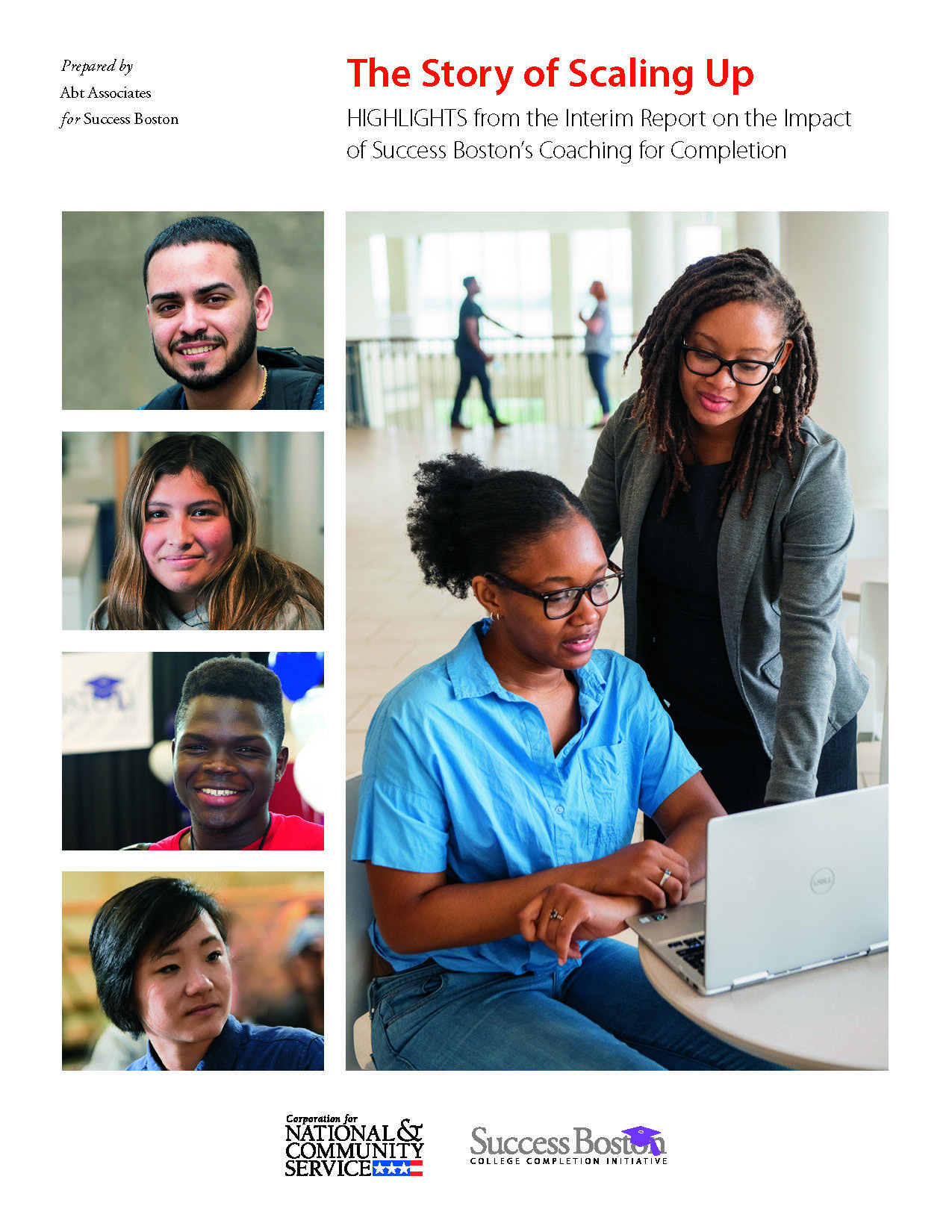New report finds continued positive impact of Success Boston on college student persistence
Research finds positive impact of Success Boston coaching model on student persistence, financial aid completion, credit accumulation – and finds persistence rising for all BPS 2015-2016 graduates
October 2, 2019
Boston – The Success Boston coaching model has had a continued positive impact on student persistence in postsecondary education as they move through their first years of higher education, according to a new report released today at the Boston Foundation.
The report, from Abt Associates, finds that Boston Public Schools graduates who received guidance from coaches on academic and other skills were about 5 percent more likely to persist into their second year of school than non-coached peers. A preliminary analysis on third-year persistence found a smaller difference.
Researchers also found that coached students were eight percent more likely to renew their financial aid than their peers, increasing the likelihood they will be able to continue their coursework.
The persistence rate difference for Success Boston coached and non-coached students has narrowed since the program expanded from serving about 300 students per BPS graduating class in 2013 and 2014 to about 1,000 students per class for the BPS Classes of 2015 and 2016. However, both coached and non-coached students from the 2015 and 2016 cohorts are persisting in postsecondary education at notably higher levels than their predecessors.
“With its launch, Success Boston data changed the metric for educational success from simply graduating from high school to completing a postsecondary program. Now we are in the process of reshaping the way we support students in postsecondary programs,” said Paul S. Grogan, President and CEO of the Boston Foundation. “Not only are we seeing the demonstrable impacts of Success Boston coaching on student persistence, but the program has helped shift the conversation about student supports, which is making it possible for more students to receive Success Boston-style coaching and thus stay in school to get that critical degree.”

In fact, both coached and non-coached students in the BPS Class of 2015 persisted into their third year of postsecondary work at higher levels than either coached or non-coached students from the Classes of 2013 and 2014.
The research examines the Success Boston model at a critical juncture in its growth. Success Boston launched in with the BPS Class of 2009, offering coaching and supports to about 300 students per graduating class. However, beginning with the Class of 2015, a grant from the Social Innovation Fund allowed the program to expand to include about 1,000 BPS graduates per class – over a third of all graduates.
In addition to persistence, researchers are tracking how coached and non-coached students compare on a number of other factors, including GPA, financial aid renewal, full-time enrollment and credit accumulation. While the researchers found no difference in student GPA between coached and non-coached students, coached students were more likely to stay enrolled full-time, complete their financial aid renewals, and accumulate credits more quickly than their non-coached peers.
Researchers also looked at variations in how frequently students were coached, and how long coaching sessions lasted. They found a significant positive relationship for student persistence for students who experienced:
- higher numbers of coach-student interactions overall;
- shorter one-on-one interactions (in person or phone); or,
- higher numbers of coach-student interactions that cover academic, financial aid, managing life responsibilities, and career topics.
The research found the length of coaching sessions had no positive impact on student persistence but mattered for students renewing their financial aid applications.
The report is part of a continuing series of examinations of the Success Boston program by Abt Associates. A final report looking at the outcomes of the program for the Classes of 2015, 2016, and 2017 is expected in 2022.
Today’s report is being released in two versions – an shorter, excerpted version and the full report, both of which are available at tbf.org and successboston.org.
